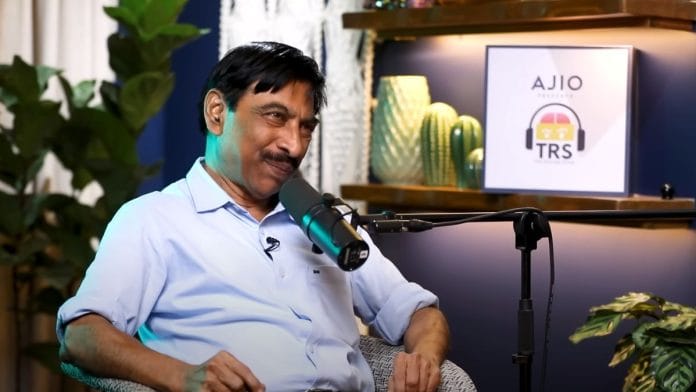Archaeologist KK Muhammed, in a recent interaction with podcaster Ranveer Allahbadia, shared his views on reconstructing old temples. Former regional director of the Archaeological Survey of India and a key figure in the excavation at the disputed Ayodhya site, Muhammed said that while he is dedicated to restoring historical structures, there is a personal, philosophical stance behind his efforts.
“I admit that when Muslims came to India, they destroyed a lot of temples,” he said. “In a very subdued way, I want to atone for it.”
Muhammed rejected the argument commonly made by Marxist historians—that rulers attacked temples purely for the wealth stored in them. He said that places of worship were specifically targeted, implying that the destruction was not just opportunistic but also ideological. Perhaps this is also part of his atonement.
What is indeed admirable, though, is the archaeologist’s efforts to reconstruct over 100 temples. It is certainly a noble gesture that promotes social harmony. However, it left me with an unsettling question: Do Muslims today need to atone for the actions of invaders who destroyed temples centuries ago?
Not all Muslims came to India as invaders. Islam entered this land through diverse routes such as trade and cultural exchanges, creating a rich and complex history. To place all Muslims under one bracket and assign them the responsibility for centuries-old invasions is neither fair nor reasonable.
If Muslims today continued to benefit from systemic privileges rooted in their ancestors’ historical oppression of others, the atonement argument might hold some weight. But in this case, the burden seems misplaced.
The reality is that the majority of Indian Muslims are Pasmanda Muslims—belonging to lower castes—who have no connection to the invading dynasties of the past. If anything, they have been victims of systemic discrimination themselves, often marginalised socially and economically.
History is rife with examples of fatwas and other forms of institutionalised bias against Pasmanda Muslims, highlighting their struggles within a hierarchical system. To place the burden of atonement on them is not only illogical but also unjust. They are not inheritors of privilege but of a legacy of exclusion and hardship.
Also read: Kerala Muslim groups are auditing others on Islamophobia. It isn’t helping
Fostering real harmony
KK Muhammed’s work should be seen as an effort to promote social harmony, rather than as a form of repentance. Beyond this, the socio-economic condition of the majority of Muslims today demands a greater focus on uplifting the community from within and working toward their integration into the mainstream.
It is also crucial for Pasmanda Muslims to acknowledge their lack of connection to the invaders of the past. The real problem lies in the widespread tendency to take pride in the conquests of ancient rulers. When Muslims today feel a sense of belonging with those distant dynasties and glorify their deeds, particularly as a way of asserting supremacy, they inadvertently validate the harm those conquests caused. This not only alienates Muslims from other communities but also risks making them complicit, in a way, in dismissing historical grievances. It becomes a vicious cycle, preventing genuine reconciliation and progress.
The fight against this mindset holds the key to fostering real harmony. At the same time, gestures of goodwill like Muhammed’s acknowledgement of historical realities are both laudable and timely. They counter populist voices that seek to paint every Muslim as an enemy of the majority, while also confronting conservative elements within the community who resist introspection.
It’s reassuring to see that the state does not align itself with divisive populist narratives. Minority Affairs Minister Kiren Rijiju recently visited Saudi Arabia, where he signed a bilateral agreement for the Haj pilgrimage. This shows that the government is committed to ensuring religious fulfilment for its Muslim citizens, just as it does for every other community.
A government that doesn’t cater to populist voices, combined with individual efforts like those of KK Muhammed, will help shape a better future for India.
Amana Begam Ansari is a columnist. She runs a weekly YouTube show called ‘India This Week by Amana and Khalid’. She tweets @Amana_Ansari. Views are personal.
(Edited by Prasanna Bachchhav)






